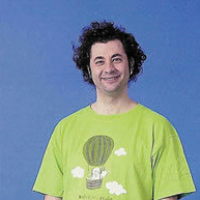
Google adds Esperanto to Google Translate, making it the 64th supported language!!
ya pauxleto, 23 Februari 2012
Ujumbe: 43
Lugha: English
erinja (Wasifu wa mtumiaji) 23 Februari 2012 1:54:00 alasiri
In English it only survives in some pronouns and correlatives, of course. he - him, who - whom, etc.
Hebrew uses a preposition to mark definite accusative words (but not indefinite) and I think Persian does something similar, but I'm not totally sure on that. Marking the accusative in some way is definitely very common.
vincas (Wasifu wa mtumiaji) 23 Februari 2012 2:07:34 alasiri
Zafur (Wasifu wa mtumiaji) 23 Februari 2012 2:08:49 alasiri
 Unfortunately I can't check it until after class, which starts in a few minutes. Boo.
Unfortunately I can't check it until after class, which starts in a few minutes. Boo. 
TatuLe (Wasifu wa mtumiaji) 23 Februari 2012 2:12:01 alasiri
Hiiren söi kissa - The mouse ate the cat (in the Finnish sentence it was the cat who ate the mouse)
But I found a sentence which it can handle in Finnish but not in Esperanto:
Segxon metis mi en mian cxambron - A chair put me in my room (wrong)
Tuolin laitoin minä huoneeseeni - I put a chair in my room (it's a sentence with really strange word order, and still it was translated with the right subject and object)
mschmitt (Wasifu wa mtumiaji) 23 Februari 2012 2:29:22 alasiri
erinja:Yes, Yiddish also sometimes puts -n (or ן- in its own alphabet) on the accusative forms of some nouns. I think this is common in Germanic languages.Thanks guys, I got it. The accusative marker is present in many slavic languages, as well as in others such as yiddish and japanese.
In English it only survives in some pronouns and correlatives, of course. he - him, who - whom, etc.
Hebrew uses a preposition to mark definite accusative words (but not indefinite) and I think Persian does something similar, but I'm not totally sure on that. Marking the accusative in some way is definitely very common.
Yet another esperanto issue successfully discussed in english.


omid17 (Wasifu wa mtumiaji) 23 Februari 2012 7:07:16 alasiri
erinja:You are absolutely right. In Persian there is an accusative marker "raa" that follows the definite direct object noun phrase.
I think Persian does something similar, but I'm not totally sure on that. Marking the accusative in some way is definitely very common.
For instance:
(I= 'man', He = 'OO', saw = 'didam')
I saw him.
=
Man OO "raa" didam.
komenstanto (Wasifu wa mtumiaji) 23 Februari 2012 9:40:25 alasiri
Bemused:How to eliminate the accusative from Esperanto in one easy lesson lol.The accusative isnt so bad to write, though in speaking it sometimes requires extra thought to cogitate. I like that resembles the German "den", only an "n" is added to "der" to make a noun accusatively declined. Suppose this was Zamenhof's influence?
Just get Google Translate to ignore the accusative.
Everyone "knows" that Google is always right lol, so anyone that is different to Google must be wrong.
How to sabotage the Esperanto language purists lol.
Just let Google Translate loose on the language.
Behold the birth of a new language.....Goosperanto.
sudanglo (Wasifu wa mtumiaji) 23 Februari 2012 9:54:30 alasiri
mschmitt:Yet another esperanto issue successfully discussed in english.Why should this not be appropriate in a site dedicated to assisting learners?
What is not appropriate, is all this blather about the accusative, in a thread whose topic is the excellent news about Google adding automatic translation for Esperanto.
Schmitty, questions about any aspect of Esperanto's grammar are in order, but a new thread would have been the place to do it.
There's a forum where you can ask such questions in German too.
pauxleto (Wasifu wa mtumiaji) 26 Februari 2012 12:34:57 alasiri
soncao:That's good news. Thank you pauxleto !You are welcome!
jchthys (Wasifu wa mtumiaji) 19 Machi 2012 4:05:20 asubuhi






